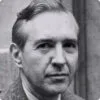To be lost in thought is not to be idle. There is visible work and invisible work. To contemplate is to toil, to think is to do.
[On n’est pas inoccupé parce qu’on est absorbé. Il y a le labeur visible et le labeur invisible.
Contempler, c’est labourer; penser, c’est agir.]Victor Hugo (1802-1885) French writer
Les Misérables, Part 2 “Cosette,” Book 7 “A Parenthesis,” ch. 8 (2.7.8) (1862) [tr. Donougher (2013)]
(Source)
(Source (French)). Alternate translations:A man is not idle, because he is absorbed in thought. There is a visible labour and there is an invisible labour.
To meditate is to labour; to think is to act.
[tr. Wilbour (1862); Wilbour/Fahnestock/MacAfee (1987)]To be absorbed is not to be unoccupied, there is an invisible as well as a visible labor.
To contemplate is to labor, to think is to act.
[tr. Wraxall (1862)]One is not unoccupied because one is absorbed. There is visible labor and invisible labor.
To contemplate is to labor, to think is to act.
[tr. Hapgood (1887)]One is not idle because one is absorbed. There is both visible and invisible labour. To contemplate is to toil, to think is to do.
[tr. Denny (1976)]
Quotations about:
cogitation
Note not all quotations have been tagged, so Search may find additional quotes on this topic.
Ideas come when we do not expect them, and not when we are brooding and searching at our desks. Yet ideas would certainly not come to mind had we not brooded at our desks and searched for answers with passionate devotion.
Max Weber (1864-1920) German sociologist, philosopher, political economist [Maximilian Karl Emil Weber]
“Science as a Vocation [Wissenscahft als Beruf],” Speech, Munich University (1918) [tr. Gerth & Mills (1948)]
(Source)
Alt. trans.:
- "Ideas come when they are least expected, rather than while you are racking your brains at your desk. But, by the same token, they would not have made their appearance if we had not spent many hours pondering at our desks or brooding passionately over the problems facing us." [tr. Livingstone]
- "[Ideas] come, at any rate, when one does not expect them, not while racking one's brains and pondering at one's desk. Of course, the ideas would not have occurred to us without our having been through the state of racking our brains and being engaged in impassioned questioning." [tr. Wells (2018)]
Value of a Journal. A sentence now; a sentence last year; a sentence yesterday. Tomorrow a question comes that for the first time brings together these three and shows them to be the three fractions of Unit.
Observe the invincible tendency of the mind to unify. It is a law of our constitution that we should not contemplate things apart without the effort to arrange them in order with known facts and ascribe them to the same law.
This is in fact the test and use of a man’s education, that he finds pleasure in the exercise of his mind.
Jacques Barzun (1907-2012) French-American historian, educator, polymath
Essay (1950-10-15), “The Educated Man,” Life Magazine
(Source)
More commonly given as "The test and use of a man's education is that he finds pleasure in the exercise of his mind."
Essay collected, under the same name, in Barzun, Begin Here: The Forgotten Conditions of Teaching and Learning, ch. 15 (1991).




